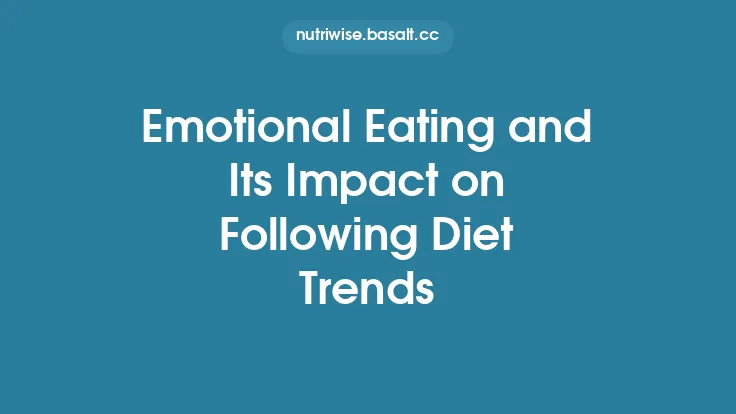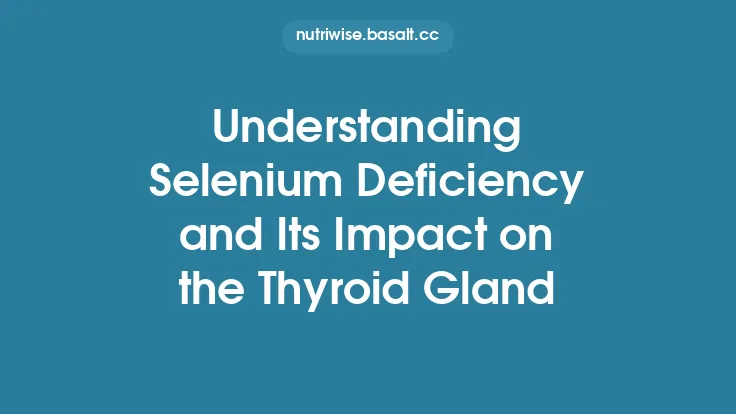Eating late has become a staple of modern life. Whether it’s a late‑night snack after a long workday, a post‑gym protein shake, or a family dinner that stretches into the evening, many people wonder if the clock‑time of their meals can sabotage their weight‑management goals. The answer isn’t a simple “yes” or “no.” It lies in a complex interplay of circadian biology, hormone regulation, food composition, and lifestyle factors. Below, we unpack the science behind late‑night eating, separate fact from fiction, and offer evidence‑based strategies for anyone looking to keep their weight on track—no matter what time they sit down to eat.
1. The Body’s Internal Clock: Circadian Rhythms and Metabolism
Our bodies run on a roughly 24‑hour cycle known as the circadian rhythm. This internal clock is orchestrated by a master pacemaker in the suprachiasmatic nucleus (SCN) of the hypothalamus, which synchronizes peripheral clocks in organs such as the liver, pancreas, adipose tissue, and skeletal muscle. These peripheral clocks regulate the timing of metabolic processes, including:
| Process | Peak Activity | Typical Time of Day |
|---|---|---|
| Insulin sensitivity | High | Morning (6 am–12 pm) |
| Glucose tolerance | High | Morning |
| Lipolysis (fat breakdown) | Moderate | Early afternoon |
| Resting metabolic rate (RMR) | Slightly higher | Daytime |
| Hormone secretion (e.g., melatonin) | Low | Night (post‑sunset) |
When we eat in alignment with these rhythms—generally earlier in the day—our bodies are primed to handle nutrients efficiently. Conversely, consuming a large proportion of daily calories during the biological night (when melatonin rises and insulin sensitivity wanes) can lead to:
- Reduced glucose uptake by muscle cells, prompting higher post‑prandial blood glucose.
- Elevated insulin levels for longer periods, which can promote lipogenesis (fat storage).
- Altered lipid metabolism, favoring storage over oxidation.
These physiological shifts do not automatically cause weight gain, but they create a metabolic environment that is more conducive to fat accumulation if late‑night eating is habitual and calorically dense.
2. Hormonal Landscape of the Evening Hours
Two hormones play pivotal roles in appetite regulation and energy balance: ghrelin (the “hunger hormone”) and leptin (the “satiety hormone”). Their circadian patterns are as follows:
- Ghrelin rises before meals and falls after eating. In the evening, ghrelin levels tend to be higher, especially if the day’s caloric intake has been low, leading to stronger cravings.
- Leptin peaks during the night, signaling satiety. However, chronic sleep restriction or irregular eating patterns can blunt leptin’s effectiveness, making it harder to feel full.
When a late‑night meal is high in refined carbohydrates or added sugars, the rapid rise in blood glucose triggers a surge in insulin, which can suppress leptin signaling further. Over time, this feedback loop may increase overall energy intake.
3. The Role of Sleep Quality and Duration
Sleep and eating are bidirectionally linked. Consuming food close to bedtime can:
- Delay the onset of sleep by stimulating the sympathetic nervous system, especially if the meal is large, spicy, or high in caffeine.
- Disrupt sleep architecture, reducing slow‑wave (deep) sleep, which is associated with growth hormone release and efficient fat metabolism.
- Increase nocturnal awakenings, leading to additional snacking opportunities.
Conversely, poor sleep can elevate ghrelin and lower leptin, driving hunger and cravings for energy‑dense foods. The cumulative effect is a higher likelihood of a positive energy balance (calories in > calories out), which over weeks and months translates into weight gain.
4. Energy Balance vs. Timing: What the Evidence Shows
A common misconception is that the body “stores” calories eaten at night more readily than those consumed earlier. While timing influences hormonal responses, the primary driver of weight change remains total energy balance. Several well‑controlled studies illustrate this point:
| Study | Design | Key Findings |
|---|---|---|
| Sutton et al., 2018 (Metabolic Journal) | 12‑week crossover trial; participants ate identical 2,500 kcal diets either within an 8‑hour window (7 am–3 pm) or a 12‑hour window (7 am–7 pm). | The early‑time‑restricted group lost ~2.5 kg more despite equal calories, attributed to improved insulin sensitivity and lower nighttime glucose excursions. |
| Mason et al., 2020 (Nutrition & Metabolism) | Randomized controlled trial; late‑night snack (300 kcal) vs. no snack, matched for total daily intake. | No significant difference in weight change over 6 months; however, the snack group reported poorer sleep quality. |
| Kelley et al., 2022 (International Journal of Obesity) | Observational cohort of 5,000 adults tracking meal timing via food diaries. | Participants who consistently ate >30% of daily calories after 8 pm had a modestly higher BMI (average +0.8 kg/m²) after adjusting for total calories, physical activity, and sleep duration. |
The consensus is that late‑night eating can be a risk factor for weight gain when it leads to excess caloric intake, poorer sleep, or metabolic dysregulation, but it is not an independent cause of weight gain in isolation.
5. Food Quality Matters More Than the Clock
When a late‑night meal is composed of nutrient‑dense foods—lean protein, fiber‑rich vegetables, healthy fats—the metabolic impact is markedly different from a snack high in refined carbs and saturated fat. Consider the following mechanisms:
- Protein stimulates thermogenesis (the “diet‑induced thermic effect”) and promotes satiety via peptide YY (PYY) and glucagon‑like peptide‑1 (GLP‑1). A 30‑gram protein serving can increase post‑prandial energy expenditure by ~10–15 kcal.
- Fiber slows gastric emptying, blunting glucose spikes and reducing insulin demand.
- Healthy fats (e.g., monounsaturated fatty acids) have a minimal effect on insulin secretion and can sustain satiety longer than simple carbs.
Thus, a late‑night snack of Greek yogurt with berries and a handful of nuts is far less likely to promote fat storage than a bowl of sugary cereal or a slice of pizza.
6. Practical Strategies for Managing Evening Eating
If you find yourself regularly eating late, the following evidence‑based tactics can help keep weight gain at bay while preserving the enjoyment of food:
- Set a “cut‑off” time – Aim to finish the majority of your calories at least 2–3 hours before bedtime. This allows insulin and glucose levels to return toward baseline.
- Prioritize protein and fiber – A snack containing 15–20 g of protein and 5 g of fiber (e.g., cottage cheese + sliced cucumber) promotes satiety without a large insulin surge.
- Mindful portion control – Use a small plate or pre‑portion snacks to avoid unconscious over‑eating.
- Hydration check – Thirst can masquerade as hunger. A glass of water 30 minutes before a late snack can reduce unnecessary intake.
- Limit stimulants – Caffeine and nicotine can interfere with sleep onset; avoid them after 4 pm if you’re sensitive.
- Create a wind‑down routine – Dim lights, reduce screen exposure, and engage in relaxing activities to signal the body that it’s time for sleep, reducing the urge to eat for “comfort.”
- Track meal timing – Simple logging (paper or app) of when you eat can reveal patterns and help you shift calories earlier in the day if needed.
7. When Late‑Night Eating Is Beneficial
Not all late‑night eating is detrimental. Certain scenarios may actually support health and performance:
- Post‑exercise recovery – Consuming a blend of protein (≈20 g) and carbohydrate (≈30–40 g) within 30 minutes after an evening workout can replenish glycogen stores and stimulate muscle protein synthesis, aiding body composition goals.
- Medical conditions – Individuals with hypoglycemia, gastroesophageal reflux disease (GERD), or certain endocrine disorders may require a small, balanced snack before bed to maintain stable blood glucose.
- Shift workers – For those whose work schedule forces eating during the biological night, focusing on nutrient density and limiting overall caloric excess becomes paramount.
In these contexts, the timing is dictated by functional needs rather than weight‑loss objectives, and the key is to keep the meal composition optimal.
8. Bottom Line: Timing Is a Piece of the Puzzle
The myth that “eating late automatically makes you gain weight” oversimplifies a multifactorial reality. Late‑night eating can:
- Shift hormonal responses (lower insulin sensitivity, altered ghrelin/leptin balance).
- Impact sleep quality, which indirectly influences appetite and energy expenditure.
- Lead to higher total caloric intake if the snack is large, energy‑dense, or unscheduled.
However, when total daily calories are controlled, the food quality is high, and sleep is sufficient, occasional evening meals are unlikely to derail weight‑management efforts.
Takeaway: Align your eating pattern with your natural circadian rhythm when possible, prioritize protein and fiber in any late‑night snack, and ensure that the timing of meals does not compromise sleep. By doing so, you can enjoy flexibility in your schedule without sacrificing your weight‑loss or maintenance goals.





